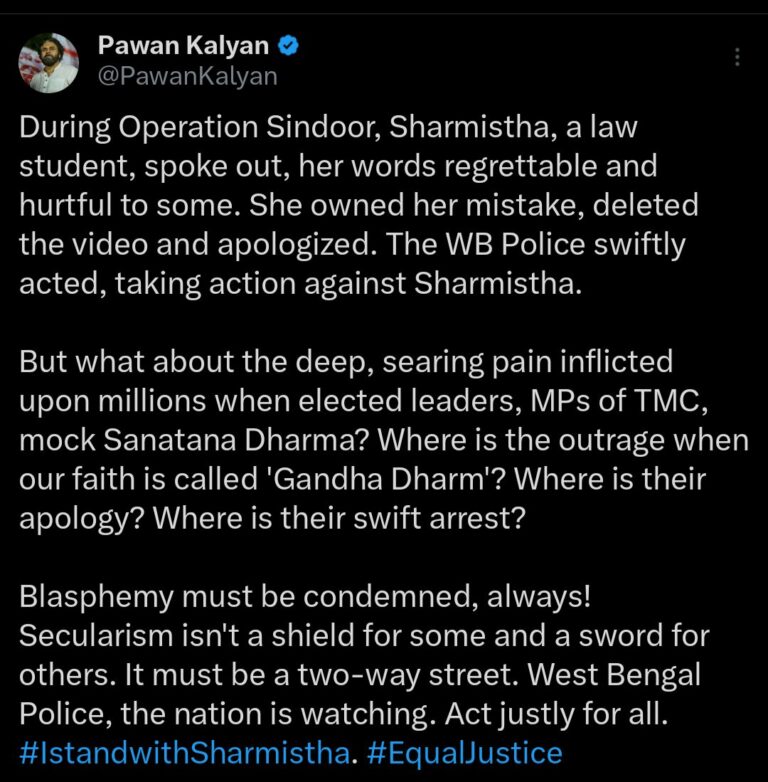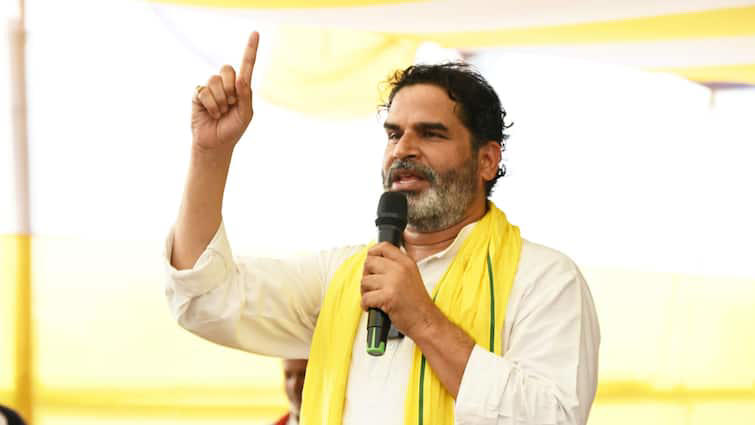Pune Law Student’s Arrest Triggers Nationwide Controversy
On May 30, 2025, Sharmistha Panoli, a 22-year-old law student from Pune and an Instagram influencer, was arrested by Kolkata Police in Gurugram for allegedly making offensive and communal remarks in a video related to Operation Sindoor, a recent Indian military initiative. The video, which was posted on her social media account and later deleted, reportedly targeted a specific religious community, sparking intense online backlash and prompting multiple complaints.
Following the controversy, Sharmistha issued a public apology, took down the video, and expressed regret over her statements. However, by that time, legal action had been initiated, with an arrest warrant issued by a Kolkata court after she allegedly evaded multiple legal notices. The arrest has reignited debates on freedom of speech, selective outrage, and communal sensitivity in India’s digital landscape.
Pawan Kalyan Defends Panoli, Questions Legal Double Standards
The arrest took a political turn when Andhra Pradesh Deputy Chief Minister and Jana Sena Party chief Pawan Kalyan publicly defended Sharmistha Panoli, criticizing what he termed “selective outrage” and biased legal enforcement. In his statement, Kalyan highlighted that TMC MPs and left-leaning influencers often mock Sanatana Dharma or Hindu beliefs on public platforms without facing comparable legal consequences.

His remarks quickly fueled a social media campaign using hashtags like #IStandWithSharmistha and #EqualJustice, reflecting growing public frustration about perceived religious bias in law enforcement. Many users echoed the sentiment that freedom of expression in India appears unequal, depending on the community being addressed.
This development has sparked a polarized public discourse: one side views Panoli’s video as provocative hate speech, while the other sees it as a case of unequal legal standards and curbing Hindu voices online. Legal experts have also weighed in, noting that while Section 295A of the Indian Penal Code criminalizes deliberate insults to religious beliefs, it must be applied uniformly and impartially, regardless of religious affiliation or political leaning.
The broader issue here is the growing friction between digital free speech and communal harmony, where social media posts now carry real-world legal consequences. Influencers, celebrities, and even ordinary citizens are increasingly subject to monitoring and accountability under India’s cyber and penal laws. At the same time, selective enforcement risks undermining public trust in democratic institutions.
Sharmistha Panoli’s arrest and the political and legal storm surrounding it are now emblematic of the deeper tensions in India’s social fabric—between freedom of expression, religious tolerance, and political neutrality in applying the law. As public support and criticism intensify, this incident is likely to remain a flashpoint in discussions on digital speech and justice equity in India.





















